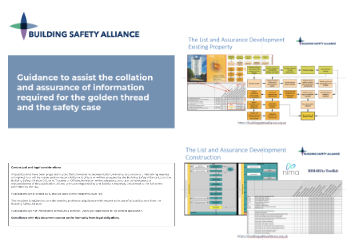National Economic Development Office (NEDO) reports
Construction industry research in the 1970s and 80s focused on the criteria of time, cost and quality with regard to procurement selection. The NEDO reports, ‘Faster building for industry’ (1983) and ‘Faster building for commerce’ (1988) were produced to assist clients in procurement system selection.
The National Economic Development Office (NEDO) was the independent arm of the National Economic Development Council (NEDC), which was a corporatist economic planning forum established in 1962. The aim was to tackle the UK’s relative economic decline by improving communication between management, trade unions and government.
It continued to have influence in terms of setting the future strategy for business and industry through the 1970s, but began to decline in relevance during Thatcher’s premiership and was abolished by John Major in 1992.
One of the more influential of the NEDO reports was ‘Thinking about building’ (1985). This produced a chart listing nine criteria for the client to establish project priorities. The criteria were:
- Time: Is early project completion required?
- Certainty of time: Is project completion on time important?
- Certainty of cost: Is a firm price needed before any commitment to construction is given?
- Price competition: Is the selection of the construction team by price competition important?
- Flexibility: Are variations necessary after work has begun on-site?
- Complexity: Does the building need to be highly specialised, technologically-advanced or highly serviced?
- Quality: Is high quality of the project, in terms of material, workmanship and design concept, important?
- Is single-point responsibility to the client, after the briefing stage, desired?
- Is direct professional responsibility to the client from the designers and cost consultants desired?
- Risk: Is the transfer of the risk of cost and time slippage from the client important?
The NEDO reports were not universally welcomed, in particular, ‘Faster building for Commerce’ was deemed problematic and ‘off-message’ for pointing out the dangers of labour-only subcontracting. However they were precursors for the more widely-accepted construction industry reports such as the Egan Report and the Latham Report.
[edit] Related articles on Designing Buildings
Featured articles and news
International Electrician Day, 10 June 2025
Celebrating the role of electrical engineers from André-Marie Amperè, today and for the future.
New guide for clients launched at Houses of Parliament
'There has never been a more important time for clients to step up and ...ask the right questions'
The impact of recycled slate tiles
Innovation across the decades.
EPC changes for existing buildings
Changes and their context as the new RdSAP methodology comes into use from 15 June.
Skills England publishes Sector skills needs assessments
Priority areas relating to the built environment highlighted and described in brief.
BSRIA HVAC Market Watch - May 2025 Edition
Heat Pump Market Outlook: Policy, Performance & Refrigerant Trends for 2025–2028.
Committing to EDI in construction with CIOB
Built Environment professional bodies deepen commitment to EDI with two new signatories: CIAT and CICES.
Government Grenfell progress report at a glance
Line by line recomendation overview, with links to more details.
An engaging and lively review of his professional life.
Sustainable heating for listed buildings
A problem that needs to be approached intelligently.
50th Golden anniversary ECA Edmundson apprentice award
Deadline for entries has been extended to Friday 27 June, so don't miss out!
CIAT at the London Festival of Architecture
Designing for Everyone: Breaking Barriers in Inclusive Architecture.
Mixed reactions to apprenticeship and skills reform 2025
A 'welcome shift' for some and a 'backwards step' for others.
Licensing construction in the UK
As the latest report and proposal to licence builders reaches Parliament.
Building Safety Alliance golden thread guidance
Extensive excel checklist of information with guidance document freely accessible.
Fair Payment Code and other payment initiatives
For fair and late payments, need to work together to add value.
Pre-planning delivery programmes and delay penalties
Proposed for housebuilders in government reform: Speeding Up Build Out.
High street health: converting a building for healthcare uses
The benefits of health centres acting as new anchor sites in the high street.
























